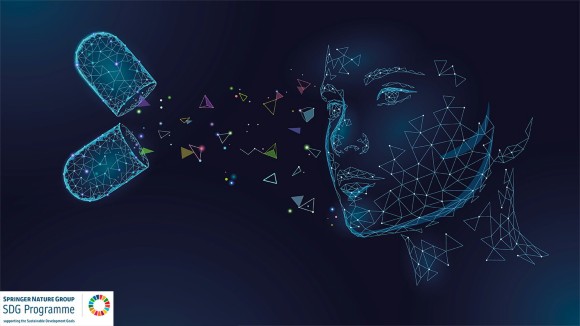Collection
Generative AI for aging research and drug discovery
- Submission status
- Open
- Submission deadline
In recent years, the confluence of Generative Artificial Intelligence (AI) with aging research and drug discovery presents a major opportunity to advance our understanding of the fundamental biology of aging and derive practical actionable interventions to address age-related diseases and aging itself. This special issue is designed to act as a focal point for pioneering research that amalgamates these multifaceted disciplines. We extend an invitation to scholars, researchers, and experts to contribute their seminal works to this academic discourse.
Generative AI, a specialized subset of artificial intelligence, has demonstrated remarkable performance in generating synthetic biological and chemical data with the desired generation conditions that is statistically congruent with its training set. From the deployment of Generative Adversarial Networks (GANs) for the realistic rendering of images to the utilization of Variational Autoencoders (VAEs) for simulating intricate drug interactions, generative models are progressively reshaping the contours of multiple scientific domains. When applied to aging research, these computational frameworks offer unprecedented opportunities for elucidating the molecular, cellular, and systemic mechanisms underlying aging, thereby augmenting traditional approaches to longevity and healthspan research.
The advent of large language models like GPT (Generative Pre-trained Transformer) and multi-modal transformers that can process multiple data types beyond text and imaging data has further broadened the scope of generative AI in aging research and drug discovery. These models excel in automated analysis and synthesis of medical literature, enabling efficient drug repurposing and hypothesis generation. Their capacity to integrate and analyze multi-modal data sets can provide more nuanced insights into the complex biological processes underlying aging, thereby opening new avenues for targeted drug development and personalized medicine.
In drug discovery, the implications of generative AI are equally transformative. Generative algorithms offer a paradigm shift by enabling the rapid simulation of the pharmacokinetics and pharmacodynamics of myriad potential drug candidates. This accelerates the research and development cycle and enhances cost-efficiency, a critical factor for the advancement of treatments for complex, age-related conditions. In addition, generative AI enables identification of dual-purpose protein targets and pathways implicated in both aging and disease.
We solicit submissions from groups with expertise spanning machine learning, computational biology, pharmacology, gerontology, and bioinformatics. Specific topics of interest include, but are not limited to, the deployment of GANs for simulating biological aging processes, the application of VAEs in drug optimization, the utilization of Restricted Boltzmann Machines in the study of cellular senescence, and the role of transformer models and the different types of large language models (LLMs) in the automated analysis of medical literature for drug repurposing.
This special issue serves as a rigorous academic platform for the dissemination of research that employs generative AI to augment our scientific understanding and technological capabilities in the realms of aging research and drug discovery.
This Collection supports and amplifies research related to SDG 3.

Editors
-
Alex Zhavoronkov, PhD
Insilico Medicine, Hong Kong, China The Buck Institute for Research on Aging, Novato, California, USA.
-
Collin Ewald, PhD
ETH Zurich, Switzerland
-
Morten Scheibye-Knudsen, MD
Scheibye-Knudsen Group, Department of Cellular and Molecular Medicine, University of Copenhagen, Denmark.
-
Pavlo Mozharovskyi, PhD
Information Processing and Communication Laboratory (LTCI), Télécom Paris, Institute Polytechnique de Paris, France.
